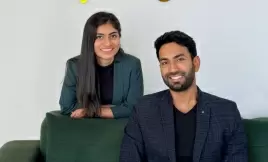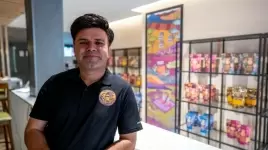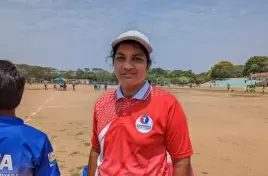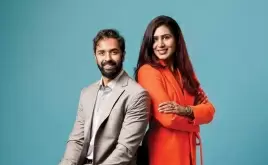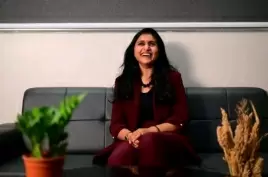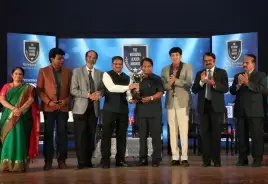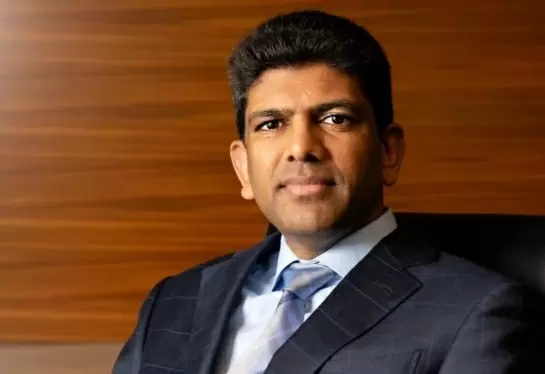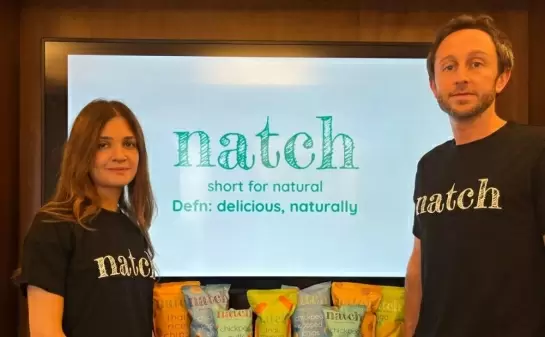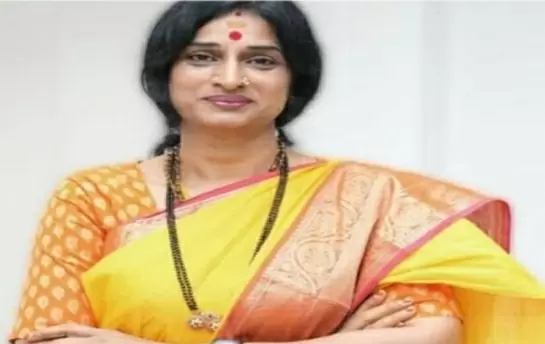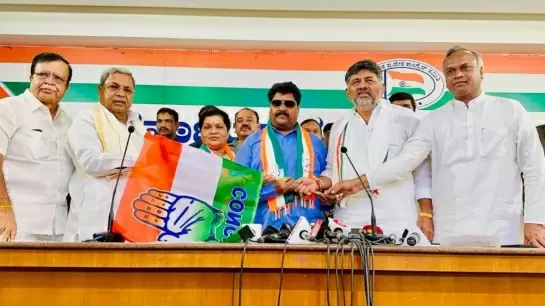How a man who sold cloth pouches for a profit of 25 paise built a Rs 200 crore helmet company

25-October-2017
Vol 8 | Issue 43
As a child, he stitched cloth pouches for a profit of only 25 paisa. Today, at 73, the company he founded, Steelbird Hi-Tech India, now a public limited, is a leading name in helmet manufacturing, with an annual turnover of Rs 200 crore.
Meet Subhash Kapur, who has worn multiple hats through his long entrepreneurial career. From cloth pouches he moved to making oil filters at a young age, and before he settled down to manufacturing helmets and accessories, he even tried his hand at fibreglass protection gear.
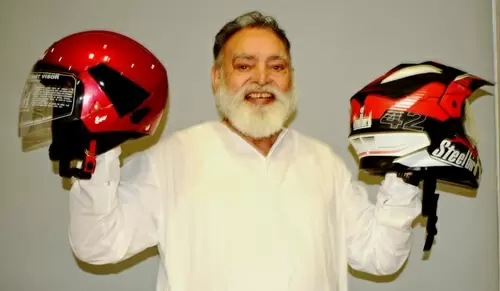 |
|
From humble beginnings Subhash Kapur has come a long way. The Chairman of Steelbird Hi-Tech India that employs over 1,700 workers and staff members at his Delhi office (Photos: Partho Burman)
|
Subhash, now Chairman of Steelbird, set up eight helmet manufacturing plants in a span of four-decades, starting May 1976. He has three plants each in Solan District in Himachal Pradesh, and Delhi, and two in Noida.
With the help of over 1,700 workers and staff members, his company produces 9,000-10,000 helmets and accessory pieces per day.
 The cost of these products ranges from Rs 900 to Rs 15,000 and he has an ongoing collaboration with Bieffe, Italy’s largest helmet manufacturer since 1996.
The cost of these products ranges from Rs 900 to Rs 15,000 and he has an ongoing collaboration with Bieffe, Italy’s largest helmet manufacturer since 1996.
manufactures 4,000 different varieties of helmets and exports to Sri Lanka, Bangladesh, Pakistan, Nepal, Brazil, Mauritius, and Italy.
The man, who never scored more than 33% in school, defines himself a simple dedicated person, firm on the commitments made to himself.
“At times, we had to sleep on an empty stomach,” says Subhash, narrating the story of how it all began. “We were once one of the four pillars of Pind Dadan Khan in Jhelum District, now in Pakistan, but the Partition devastated us.”
Subhash’s illustrious family had 26 businesses, including utensil, cloth, jewellery and agriculture. They had 13 wells (a single well could irrigate 30-40 acres agricultural land); and the first petrol pump in Kashmir was set up by his great grandfather in 1903.
Then times turned and the Partition brought the family from riches to rags.
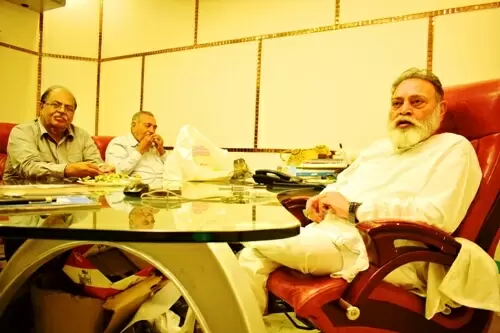 |
|
Steelbird produces 9,000-10,000 helmets and accessory pieces per day and even exports to countries including Sri Lanka, Bangladesh, Pakistan, Nepal, Brazil, Mauritius, and Italy
|
In August 1947, his mother Leelawanti along with her four sons Charaj, Jagdish, Kailash, and one-and-a-half-year old Subhash, were on a pilgrimage in Haridwar, in present day Uttarakhand, when the Partition was declared. She had no alternative but to stay back with the children, while her husband Tilak Raj Kapur was in Pakistan.
His father nearly got killed while making his way to India. He boarded a truck with hundreds of other Hindu migrants which was attacked midway and most people were butchered – his father along with a few lucky others managed to survive.
He was in a bad state, however, and left completely without clothes, when he crossed the border. “His cousin gave him a dead woman’s petticoat to cover himself…” recounts Subhash. “The family united once again but barely managed to survive by doing odd jobs.”
They spent four troublesome years in Haridwar before moving to Delhi in 1951. Their struggle continued till 1956, but since business ran in their veins, his father then decided to do something about this.
He sold his wife’s jewellery and started a small business. He started making cloth pouches for packaging salt in 1956. “He named the company Kapur Thaili House and the family began to manufacture 1 kg and 2.5 kg cloth pouches,” says Subhash. “We sold a pack of 100 pouches at Rs 4. It became an overnight success.”
His job was to cut the cloth, while his brothers used to stitch, pack and print the pouches. He still remembers the day when he appeared for his matriculation exam in 1959-60.
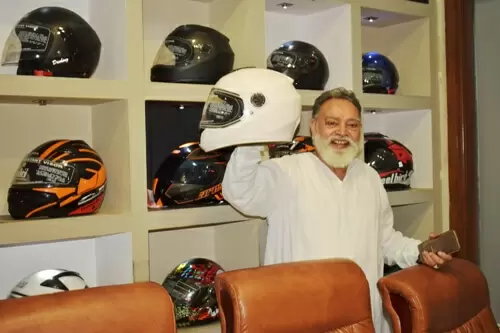 |
|
Subhash started manufacturing helmets in 1976
|
“I had to cut the cloth for the pouches before going to the exam hall,” Subhash recollects. “In those days, sustenance was much more important than education…” He did not pursue studies after that.
Kapur Thaili House, a family business, made a small profit of 25 paisa per pouch and, slowly, they accumulated Rs 6,000 by 1961-62. It was during those days that, Surinder Arora, a friend of his brother Kailash Kapur, came to him with a business idea – of making oil filters.
On a trial basis, they made a dozen oil filters and sold those to Oriental Auto Sales in Karol Bagh for Rs 18, while their production cost was Rs 12 per dozen. The profit of Rs 6 straightaway encouraged him a lot.
He proposed a partnership to Surinder but he refused. Instead, he offered his machines worth Rs 3,500-Rs 4,000. Subhash agreed and paid him Rs 3,000.
“That was my initial investment,” he says. “But soon I realised I could concentrate neither on the pouches nor on making oil filters and had to make a choice.”
Eventually, he mustered up courage and went to Hans Auto Agency in Kashmiri Gate, hoping to bag orders for oil filters. It wasn’t easy. Hansraj, the shop owner, was harsh and grilled him with questions on the use of oil filters, which type for which vehicle, different types of oil filters and so on.
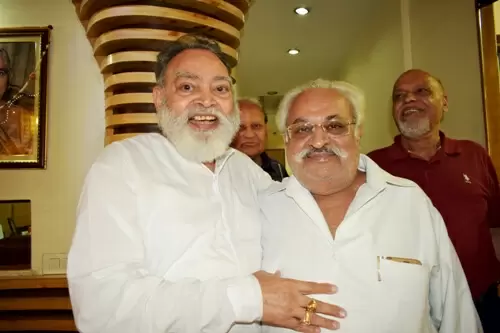 |
|
Subhash with his brother-in-law
|
“I did not know the answers to these questions because I was basically a bag manufacturer trying to start a new venture,” Subhash confesses. He was near tears by this grilling when Hansraj softened up and gave him a few quick lessons.
On March 13, 1963, Subhash founded Steelbird Industry, a partnership firm with his family, at Jamir Wali Street in Nawabgunj, Delhi. It was Surinder who came up with the name. “I never looked back after this,” says Subhash, proudly. “In the next two years, I manufactured around 280 different varieties of oil filters for tractors, which included fuel, air, hydraulic and lift.”
In a few years, he became so successful that his friends came to him for business advice. He would recommend they start manufacturing helmets as the government was about to make helmets mandatory. One day, while in the washroom, suddenly the thought struck him: why is he not making helmets of his own instead of advising his friends?
“I came out and declared that we are going to manufacture helmets from now on, in June 1976,” says Subhash.
The practice of wearing helmets was not mandatory before the 70s and Indians were largely dependent on imported helmets. Then India started rolling out compulsory helmet use and the Government of Delhi announced the new ruling in 1976.
He knew some people at Pilkington Limited, the first fibreglass company to set up its plant in India, who gave him all the knowledge needed for making helmets, and production started as the statutory advisory day neared.
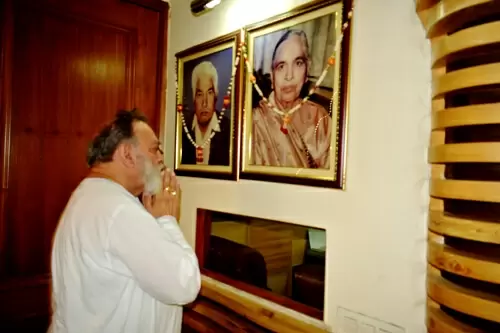 |
|
Subhash still remembers the struggle that his parents underwent after they migrated to Delhi post-partition
|
He began marketing for his helmets at a few shops in Delhi. The rate of his helmet was fixed at Rs 65 but some shopkeepers wanted to bring it down to Rs 60.
“I did not succumb to their pressure because I knew that they had no choice but to buy from me,” says Subhash. “When the demand boomed, all those shopkeepers started wanting our helmets and, in a day, I collected Rs 2.5 lakh from the market!”
As a prudent businessman, he invested the entire 2.5 lakh on advertisements in newspapers and on Doordarshan, during the popular programme Chitrahaar that featured songs from Bollywood. This investment was immediately fruitful and the demand for Steelbird helmets rose manifolds. He increased the selling price from Rs 65 to Rs 70.40.
“I remember around 1,000 customers waiting outside my Jhandewalan office on the day they made helmet-wearing compulsory,” says Subhash. “Even the broken helmets were sold. We started getting money in advance. Our sales boomed.”
Gradually, his business soared and he set up a new one-acre plant in Mayapuri in 1980. However, his success story suffered a few setbacks.
1984, he decided to make wind-protection guards and other fibreglass items for safety but the business flopped as the items were a bit expensive. “I lost a lot of money,” rues Subhash.
In 1999, his younger brother Ramesh separated from the business.
Another unfortunate incident took place on November 29, 2002, when his Mayapuri plant caught fire due to an electrical short-circuit. “I lost Rs 20-22 crore,” says Subhash. “Thanks to SBI, which trusted me and sanctioned a loan, I managed to revive the business.”
Today, the only regret Subhash has is that his childhood was lost in trying to make ends meet. “I did not get up to any mischief but I’m trying to make up for it now,” he laughs, “by having fun with my grandchildren.”
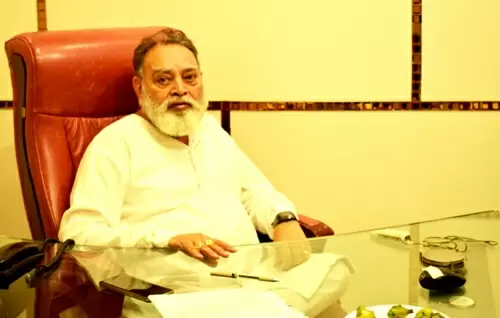 |
|
Even an obstacle will dread to present itself, if you stand strong, says Subhash
|
Subhash married Lalita on May 3, 1971. They have two children, Rajeev and Anamika.
His face lights up while narrating the tale of how he met his lady love. “It was like love at first sight,” recalls Subhash. “I first saw her as she walked to a typing centre in Nawabgunj, with her head down. She was around 19 and I was 23-24. It became a routine: around 5 p.m. I would wait for her at the typing centre. One evening when I was looking at her, a sweet vendor nearby objected to it and warned me about her bullish brothers.”
He decided to send a marriage proposal instead of backing off – he used the help of a friend to talk to her brothers, and the rest is history.
“All my life I stood up and confronted challenges instead of kneeling down,” says Subhash. “Even an obstacle will dread to present itself, if you stand strong.”
That’s great life advice from Helmet Man.
This Article is Part of the 'Amazing Entrepreneurs' Series
More Amazing Entrepreneurs


